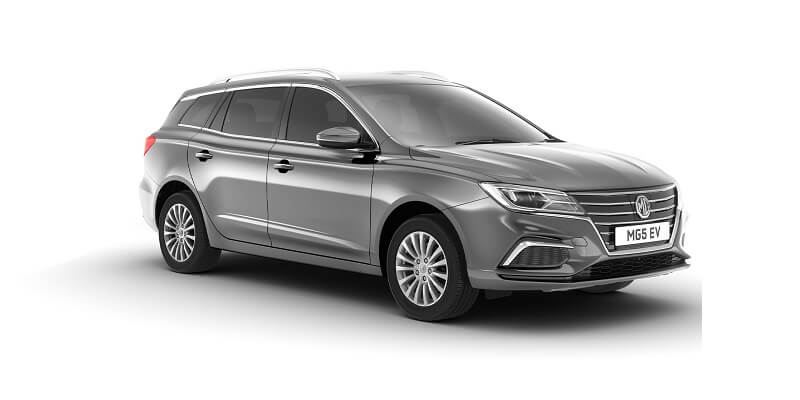Read important developments on innovations, partnerships, new launches, research, and policy that took place in EV and associated segments in India recently.
Highlights
- Karnataka Dy CM presses on need to shift to electric mobility
- Triton Electric in talks to invest in Karnataka
- Switch Mobility joins hands with Siemens
- Flipkart partners with Mahindra Logistics
- PURE EV launches electric scooter EPluto 7G
- The deadline to meet CAFE norms will not be extended by India
- Olectra Electric Buses in Goa
- India plans to offer fresh incentives for EVs
- More Indian customers are willing to buy electric vehicle, finds survey
- India plans phasing out old and defective vehicle
- MG Motor India joins hands with IIT Delhi
Detailed News
Karnataka Dy CM presses on need to shift to electric mobility
CN Ashwathnarayan, Deputy CM, Indian state of Karnataka, recently gave a statement pressing on the need to shift to electric mobility. Speaking at an event organized by the World Economic Forum, the minister said that this shift has become necessary now more than ever due to the fast depletion of fossil fuels, increase in energy costs, impact of transportation on the environment and digital intervention.
He highlighted several areas of innovation namely mobile internet, automation, the internet of things (IoT), cloud computing, advanced genomics and renewable energy, that need to be adopted by governments across the world. He also apprised the attendees of the steps taken by the state government on suburban train project and expansion of the Metro train network in Bengaluru.
Triton Electric in talks to invest in Karnataka
Triton Electric, a company headquartered in US, is planning to enter Indian market. According to some news reports, the company has registered an Indian subsidiary by the name of Triton Electric Vehicles India in New Delhi and is also in talks with the government of Karnataka to invest in the state. New agency UNI India reports that a virtual meeting between the CEO of the company, Himanshu Patel, and Karnataka CM, BS Yediyurappa also took place recently.
Switch Mobility joins hands with Siemens
Switch Mobility Automotive and Siemens Limited have entered into a Memorandum of Understanding (MOU) to make eMobility a compelling solution for businesses and environment in India and to lower Total Cost of Ownership (TCO). The companies,as reported by ANI, will work together in electric commercial mobility segment and execute eMobility projects in India.
Flipkart partners with Mahindra Logistics
Flipkart has enetered into a partnership with Mahindra Logistics Limited (MLL), according to a news report by UNI India. The aim of the partnership is to fast track deployment of electric vehicles across the e commerce company’s logistics fleet in the country. Flipkart plans to have 100% electric mobility in its logistics fleet by 2030 hence will be deploying more than 25,000 electric vehicles (EVs). The company for this has already partnered with many OEMs and introduced two and three-wheeled electric vehicles in its supply chain. MLL has launched EDEL, its own electric delivery brand in late 2020, that has partnered with companies and is helping them to provide sustainable last-mile delivery. As of now the company has presence across six cities in India namely Bengaluru, Mumbai, Delhi, Pune, Kolkata, and Hyderabad.
PURE EV launches electric scooter EPluto 7G
A Hyderabad-based startup, PURE EV, recently launched an electric scooter, EPluto 7G. It has 2.5 KWH Lithium battery pack which takes four hours to charge and has iCAT certified range of 116 km on a single charge. One of the highlights of the scooter, as shared by the company to the media, is that it takes only Rs 17 per charge and with can travel almost 116 KM at 60 Kmph top speed. The scooter has an ex-showroom price of Rs 79,999.
The deadline to meet CAFE norms will not be extended by India
With the aim to lower the fuel consumption i.e. improving fuel efficiency of vehicles by lowering carbon dioxide (CO2) emissions, CAFE or Corporate Average Fuel Efficiency/Economy regulations were introduced in India in April 2017. Its first phase gives carmakers deadline until the end of March 2022 to cut carbon emissions from new passenger cars to under 130 grams per kilometer. The next phase that is the second phase is starting from April 1, 2022, under which the norms will further be tightened to 113 grams per kilometer. Society of Indian Automobile Manufacturers (SIAM), and some other bodies had recently met transport ministry with an appeal to delay the implementation of norms by two years but according to a report by Reuters the request has been declined.
Olectra Electric Buses in Goa
Goans will be now able to travel in Zero Emission and noiseless Electric Buses deployed by Electra Greentech Limited. The 12-metre buses have range of 250 km on a single charge. The buses are air-conditioned and have a seating capacity of 49 persons, that includes the driver. Olectra is India based Electric Bus manufacturer for operating and deploying electric buses for public transport. The company claims to have highest market share in this segment and has already deployed 320 + Electric buses in various STUs in India. Further, Olectra has orders for the deployment of 1,225 Electric Buses in India.
India plans to offer fresh incentives for EVs
India may offer fresh incentives to companies making electric vehicles (EVs), according to a news report by Reuters. The country from last few years has been devising policies to promote EVs to reduce its oil dependence and cut pollution. The Government aims to attract $14 billion of investment over five years in EV segment. The plans envisage $8 billion of incentives for carmakers and suppliers over a five-year period, says the report.
More Indian customers are willing to buy electric vehicle, finds survey
CarDekho in association with and OMG (Omnicom Media Group) a leading global advertising & marketing company recently released the Electric Vehicle Customer Awareness Study. The survey claims that 66% of customers are willing to buy Electric Vehicles, out of which 53% said they were strongly inclined to go electric. The survey was conducted among potential 4W vehicle buyers across India.
India plans phasing out old and defective vehicle
With the aim of creating an eco-system for phasing out unfit and polluting vehicles, India MoRTH Nitin Gadkari recently introduced the Vehicle Scrapping Policy in the Lok Sabha. The Minister claimed that the policy can bring transformational changes in the automobile sector by reducing vehicular emission of pollutants. This policy will also improve fuel efficiency of vehicles, ensure road and vehicular safety, attract investment, boost availability of low cost raw materials along with creating jobs, said the minister. Nitin Gadkari also said the government is working to develop the capacity to indigenously produce 100 per cent lithium ion batteries in next one year.
MG Motor India joins hands with IIT Delhi
MG Motor India has joined hands with IIT Delhi’s Centre for Automotive Research and Tribology (CART) for research in the field of electric and autonomous vehicles, the automaker said in a Press Release. The partnership through Foundation for Innovation and Technology Transfer (FITT), IIT Delhi aims at furthering MG’s focus on CASE mobility (Connected – Autonomous – Shared – Electric); through enabling supporting research for deployment of electric and autonomous vehicles in the urban landscape in India.
Source: News Reports, Press Release


